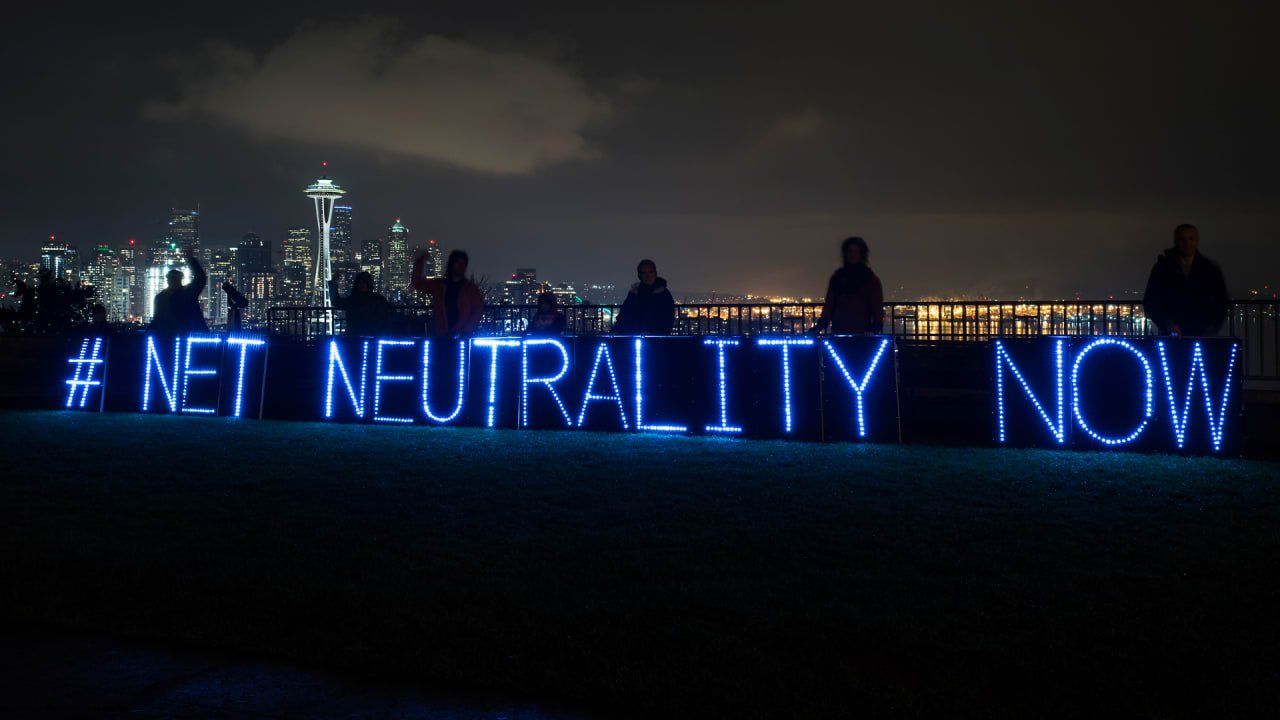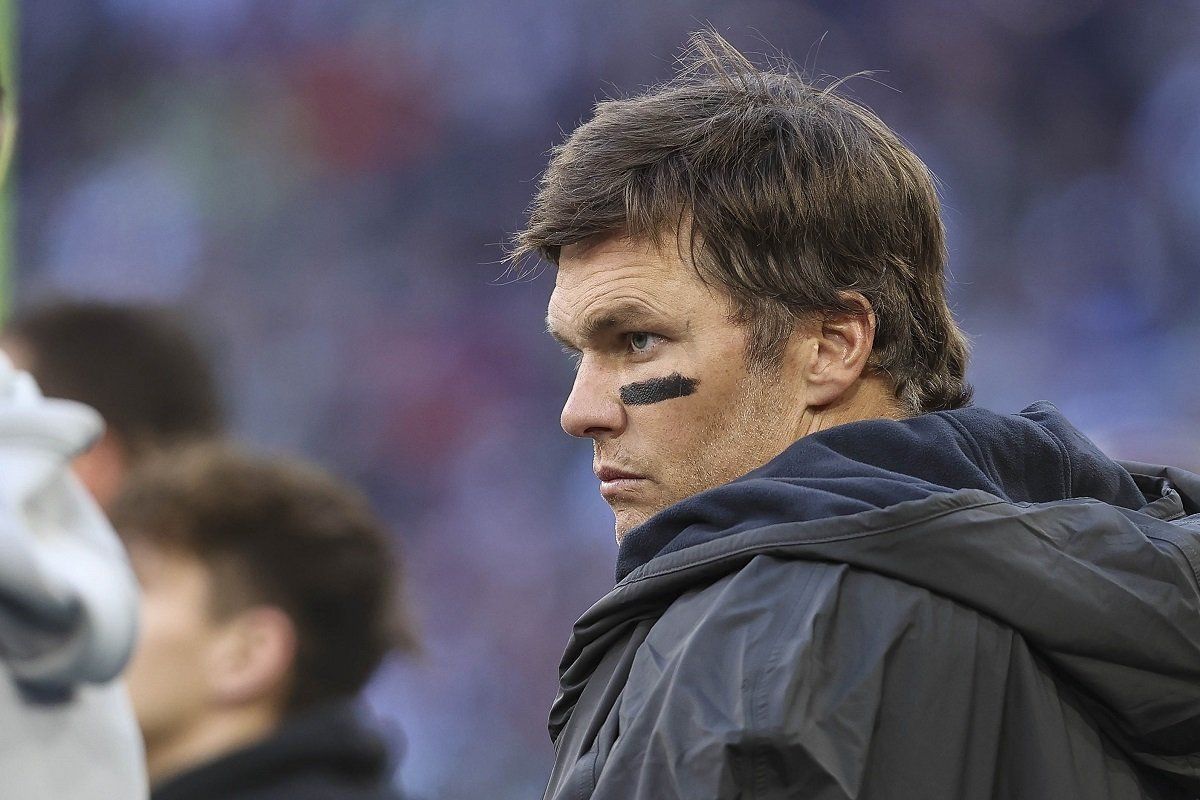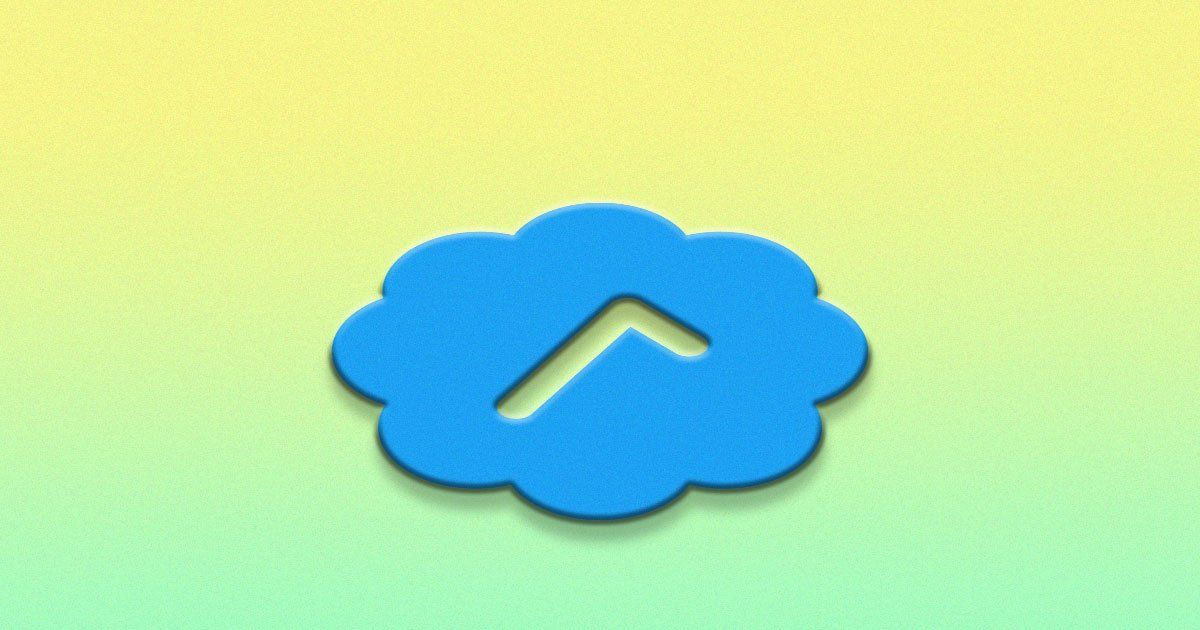
On Thursday, major internet service providers (AT&T, Verizon, Comcast, et al.) dropped a lawsuit challenging a California law requiring broadband networks to treat traffic and content from all websites and services equally. The ISPs’ legal challenge had already lost three times in California Federal courts. Network neutrality proponents are calling the abandonment of the suit a huge win for digital rights and the open web.
The ISP trade groups revealed their decision in a brief filed Wednesday in the Federal District Court of California, Eastern District. “When they lost last time around . . . they really lost,” says Evan Greer of the grassroots tech-rights group Fight for the Future, which has long advocated for net neutrality but was not directly involved in the case. “The court all but said that if you take this case to the Supreme Court you will lose.”
The ISPs last year asked the U.S. District Court for the Eastern District of California for an injunction to block the California law, but the court declined. The trade groups then appealed to the U.S. Court of Appeals for the Ninth Circuit, but the court only reaffirmed the lower court’s decision. Next, the ISP groups asked the appeals court for an en banc hearing (in which all the court’s justices are present). The appeals court refused to vote on the case in a decision handed down April 22. The trade groups’ withdrawal notice comes roughly two weeks later.
“They may have just been reading the writing on the wall that there is a strong case for net neutrality, and then decided not to waste more money but to cut their losses,” Greer says.
California lawmakers began working on the state’s own network neutrality law after the Trump administration’s FCC (chaired by former Verizon lawyer Ajit Pai) in 2017 reversed an earlier ruling that required carriers to treat web traffic and content from all websites and services equally. California’s law, eventually named SB 822 , restored those requirements for ISPs doing business within the state. The law passed in 2018 (despite fierce lobbying by the ISPs) but was not enforced while the legal wrangling continued in the courts.
“While California has been free to enforce its net neutrality law for over a year, today removes any doubt that the state has the right to protect its economy and democratic discourse from the whims of large phone and cable companies,” Stanford Law professor Barbara van Schewick, a proponent of the SB 822, wrote in a blog post.
The trade groups representing the ISPs released a statement Wednesday in which they seem to rail against state-level net neutrality laws, not against the need for network neutrality protections in general.
“Broadband providers are united in support of an open internet and committed to delivering the content and services consumers demand as they’ve continued to demonstrate through their marketplace practices,” the trade groups wrote in the joint statement. “A common framework protecting the open internet is the right path forward for consumers, innovation, and economic growth. We commit to work with Congress and the FCC to develop a federal approach that resolves these important issues.”
California remains the only state to pass a law that restores all of the net neutrality protections that the FCC eliminated in 2017. Lawmakers in Washington, D.C., see it as a “model” bill and have closely watched its fate in the courts. The withdrawal of the ISPs’ lawsuit may make SB 822 an even stronger model for a federal law if Congress decides to advance one.
It’s far more likely that a Democratically controlled FCC would make a ruling to reinstate the FCC network neutrality protections. But in order to do that, the agency must have all of its commissioner chairs filled—and one remains vacant because the Senate has slow-walked the confirmation of Democrat Gigi Sohn. As of now, the FCC is deadlocked on party lines at 2-2. “The Senate needs to get their act together,” Greer says.
As the delay continues, the ISP lobby groups and proxies are ramping up efforts to spread uncertainty and doubt among senators about the implications of Sohn’s confirmation.





